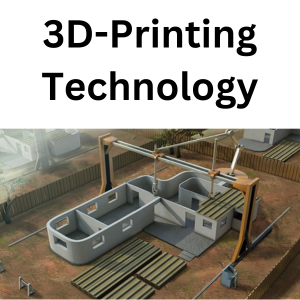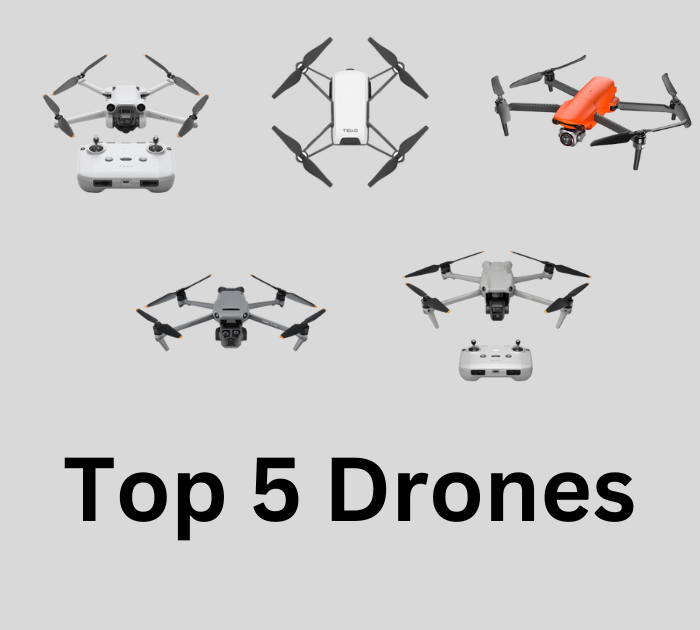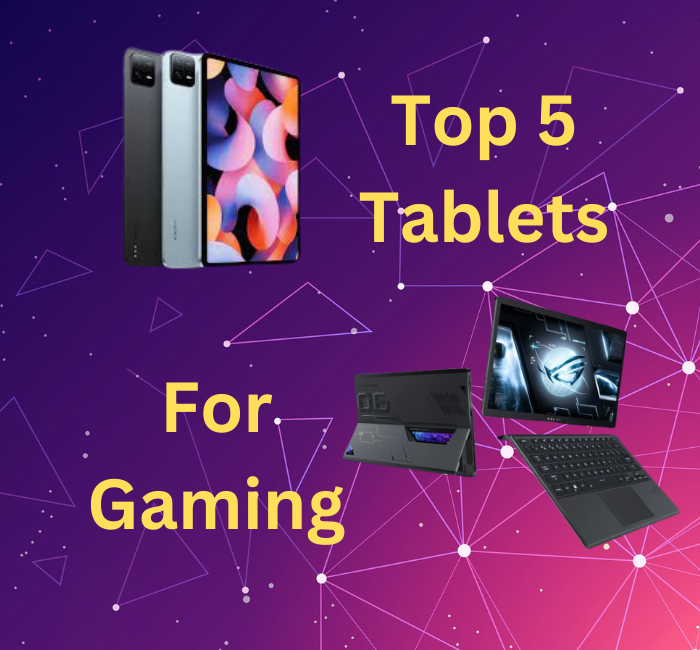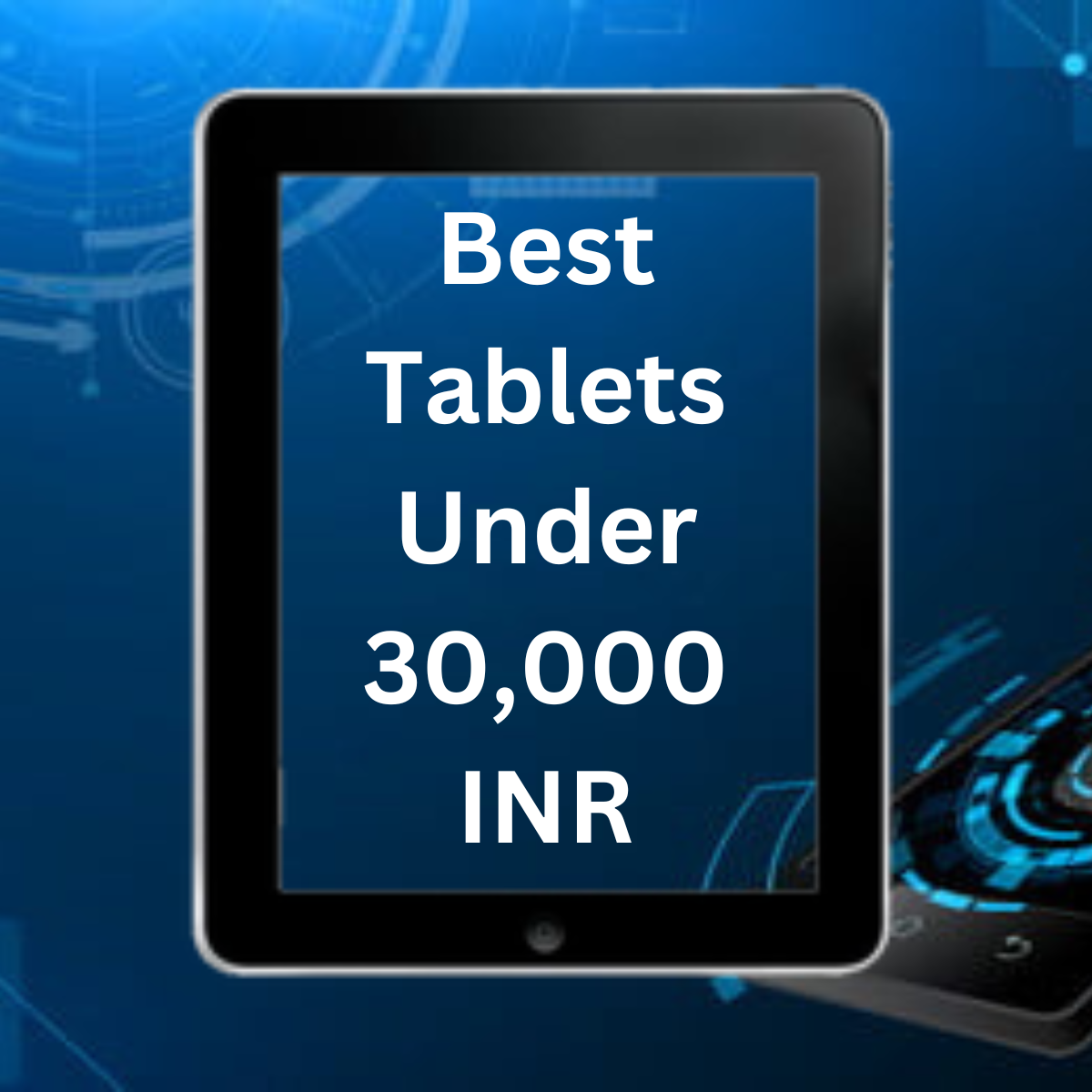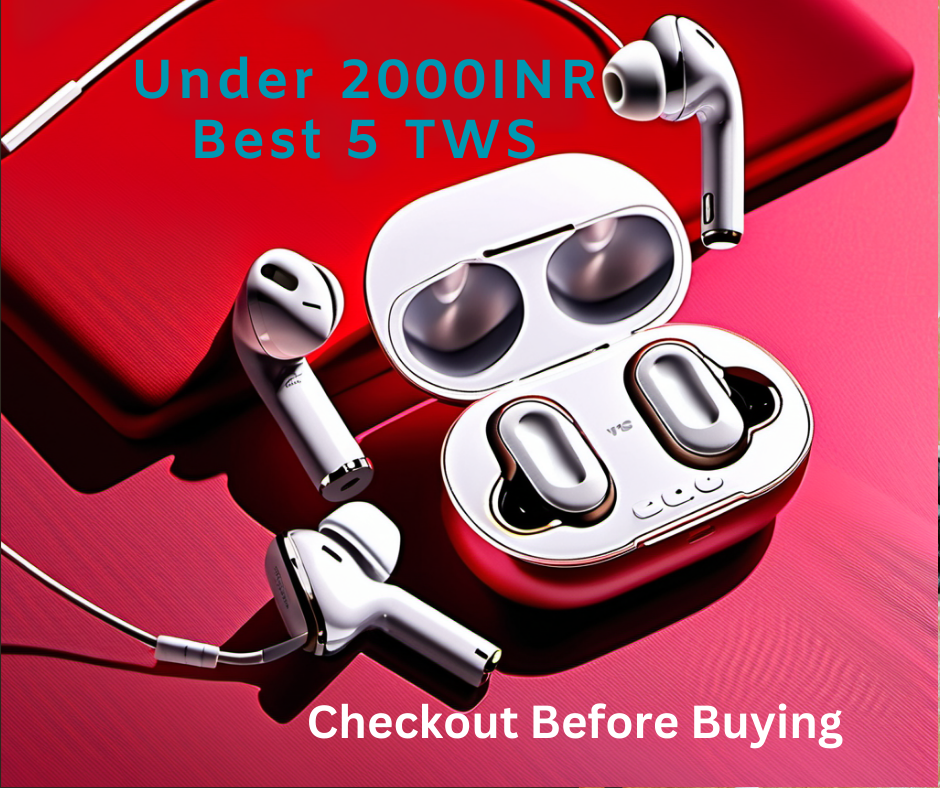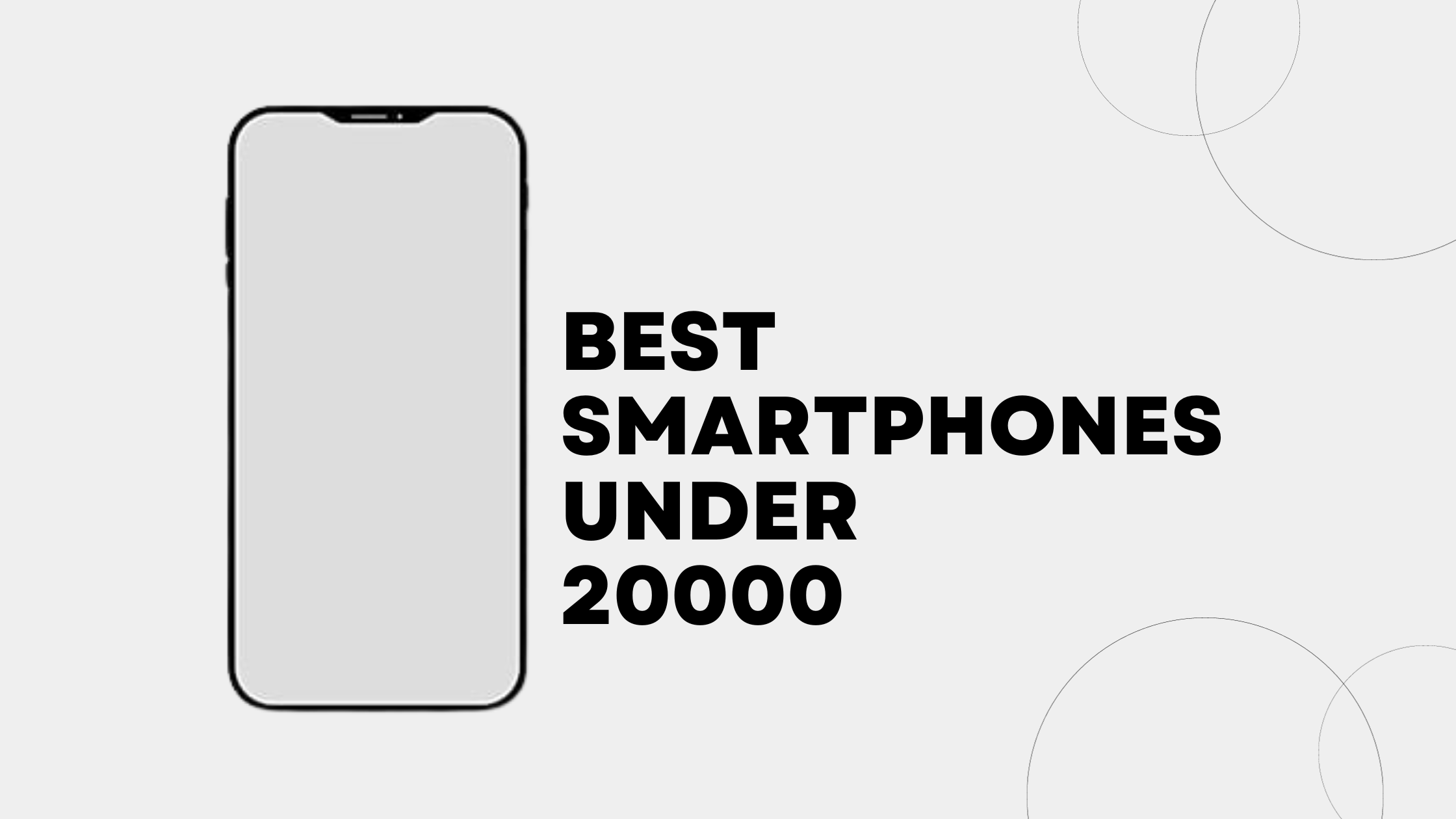
In our fast-changing world, technology has become a significant part of our daily lives. This holds true for the field of healthcare, a crucial pillar of our society. Healthcare technology, often referred to as health tech, is revolutionizing the way we approach healthcare across various aspects, ranging from preventive measures and diagnostics to treatment methods and the overall well-being of patients. In this comprehensive exploration, we will embark on a journey to uncover the remarkable strides achieved in the field of health technology and how these profound advancements are making a lasting impact not only on the healthcare industry but also on the holistic outcomes and experiences of patients.
The Digital Revolution In Health Technology
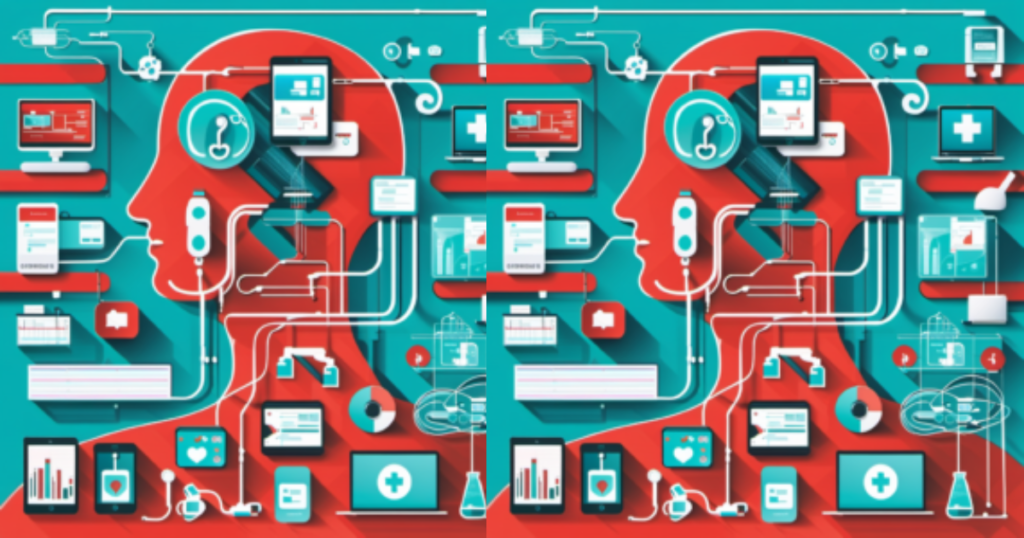
- Telemedicine and Telehealth Telemedicine has risen to prominence, especially driven by the urgency of the COVID-19 pandemic. It offers patients the transformative opportunity to consult with healthcare professionals remotely, transcending geographical boundaries through video calls and telephonic exchanges. This not only introduces a new era of convenience but also addresses the longstanding issue of accessibility, particularly in remote or underserved areas. Telemedicine has become a vital tool in ensuring that patients receive timely medical care regardless of their location. Patients in rural areas, for example, can now consult with specialists from urban centers without having to travel long distances. Additionally, telehealth services have played a crucial role in minimizing the spread of infectious diseases by reducing in-person visits to healthcare facilities during the pandemic.
- Wearable Devices The landscape of wearable health technology, which includes fitness trackers and smartwatches, is experiencing a surge in innovation. These sophisticated devices provide individuals with real-time insights into their health and activity levels. From monitoring heart rates and tracking sleep patterns to detecting subtle anomalies, wearables empower users to embark on proactive journeys toward achieving optimal health and well-being. Wearable devices have become popular among individuals seeking to monitor their fitness and health in real time. They not only provide immediate feedback on physical activity but also enable users to set and track fitness goals. For example, a fitness tracker can measure the number of steps taken, calories burned, and even analyze the quality of sleep, helping users make informed decisions to improve their overall health.
- Health Apps Within the vast ecosystem of mobile applications, a diverse array of health-related services flourishes. These apps do far more than dispense medication reminders; they craft personalized fitness regimens, offer essential mental health support, and empower individuals to take charge of their health management, fostering a sense of self-efficacy and control. Health apps have become an integral part of many people’s lives. They can help users manage chronic conditions by tracking medication schedules and providing valuable information on symptom management. Moreover, mental health apps offer support for individuals dealing with stress, anxiety, and depression, providing a convenient and accessible way to access mental health resources.
Enhancing Diagnosis and Treatment
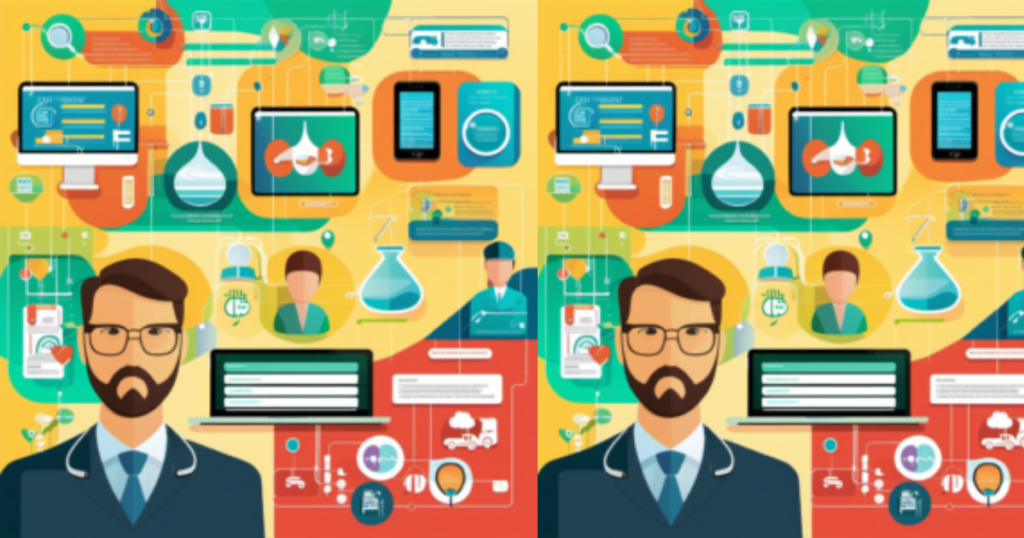
- Artificial Intelligence (AI) The introduction of AI into the healthcare arena signifies a monumental paradigm shift. AI serves as a powerful ally, sifting through vast datasets to assist in disease diagnosis and treatment planning. Machine learning algorithms unravel intricate patterns and predict disease risks, equipping healthcare professionals with precision tools for making decisions with the utmost accuracy. AI’s impact on healthcare is profound and multifaceted. For instance, in radiology, AI-powered systems can analyze medical images, such as X-rays and MRI scans, to detect abnormalities and assist in the early diagnosis of diseases like cancer. Additionally, AI-driven chatbots and virtual assistants are being used to provide patients with health information, answer medical queries, and offer guidance on managing chronic conditions.
- Robotic Surgery Surgical precision has reached unprecedented levels with robotic-assisted procedures. Surgeons now wield unparalleled control, ushering in an era of minimally invasive surgical interventions that minimize patient trauma and hasten postoperative recovery. This represents a testament to the marriage of human ingenuity and technological precision. Robotic surgery systems allow surgeons to perform complex procedures with greater precision and dexterity. These systems consist of robotic arms controlled by surgeons through a computer interface. The robotic arms translate the surgeon’s movements into highly precise actions inside the patient’s body, resulting in smaller incisions, reduced blood loss, and quicker recovery times.
- Genomic Medicine At the intersection of DNA sequencing and analysis lies the dawn of personalized medicine. Genetic insights are now harnessed to tailor treatments according to an individual’s unique genetic makeup, elevating treatment efficacy while minimizing side effects. This bespoke approach to medical care heralds a future where each patient’s journey is uniquely sculpted by their genetic blueprint. Genomic medicine holds immense promise for the treatment of various diseases, particularly cancer. By analyzing the genetic mutations driving a patient’s cancer, oncologists can prescribe targeted therapies that specifically address the underlying causes of the disease. This approach often results in more effective treatments with fewer side effects.
Improving Patient Care
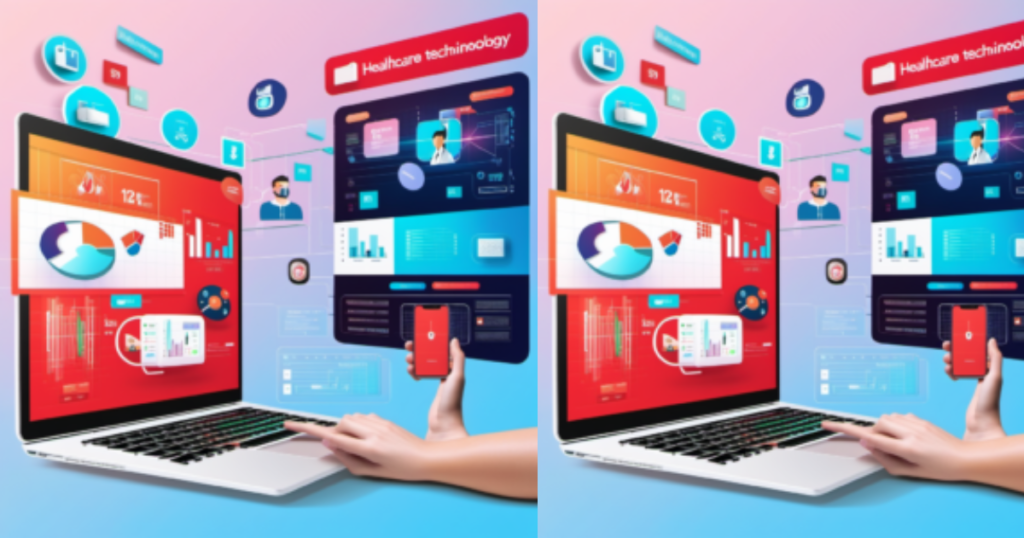
- Electronic Health Records (EHRs) Electronic Health Records (EHR) systems orchestrate a harmonious symphony of patient data management. These systems ensure that patient information is readily available to healthcare providers, leading to more coordinated, efficient, and patient-centric care delivery. The days of cumbersome paper records are fading into history, replaced by digital platforms that empower healthcare professionals with the insights needed to provide tailored and effective care. EHRs have transformed the way healthcare providers access and manage patient information. Instead of sifting through stacks of paper records, healthcare professionals can quickly retrieve a patient’s medical history, including diagnoses, medications, and previous test results, with just a few clicks. This streamlines the care process and reduces the likelihood of errors.
- Patient Engagement Tools The realm of health tech also encompasses a spectrum of tools designed to engage patients actively in their own healthcare journey. Patient portals, for instance, provide individuals with seamless access to their medical records and a direct line of communication with their healthcare providers. This collaborative approach fosters a sense of partnership and accountability between patients and their healthcare teams. Patient engagement tools empower patients to take a more active role in managing their health. Patients can schedule appointments, request prescription refills, and securely message their healthcare providers through these portals. This not only enhances communication but also encourages patients to stay informed and engaged in their healthcare decisions.
- Remote Monitoring Innovative devices such as remote cardiac monitors and continuous glucose monitoring systems usher in a new era of healthcare. They enable the constant and unobtrusive monitoring of patients grappling with chronic conditions, allowing for early interventions and a substantial reduction in hospital readmissions. The ability to oversee health parameters in real time transforms the management of chronic illnesses, enhancing the quality of life for countless individuals. Remote monitoring devices are particularly valuable for individuals with chronic conditions like diabetes and heart disease. These devices continuously collect data on vital signs and other health metrics, transmitting this information to healthcare providers. In case of abnormalities, healthcare professionals can intervene promptly, potentially preventing serious complications and hospitalizations.
Challenges and Ethical Considerations
While health technology offers boundless promise, it also raises a tapestry of challenges and ethical considerations that demand our unwavering attention and innovative solutions:
- Privacy and Security Safeguarding patient data against potential breaches stands as a paramount concern in the digital age. Stringent measures and robust cybersecurity frameworks are essential to ensure the sanctity of patient information. The digitization of healthcare records and the transmission of sensitive patient data over networks create vulnerabilities that can be exploited by malicious actors. Protecting patient privacy and ensuring the security of their health information is an ongoing battle that requires constant vigilance and investment in cybersecurity infrastructure.
- Access and Equity Ensuring universal access to health technology, irrespective of socioeconomic status, is an imperative goal. Bridging the digital divide is as crucial as advancing technological innovations. While health tech has the potential to greatly improve healthcare outcomes, disparities in access can exacerbate existing inequalities in healthcare. It is essential to address these disparities through policies and initiatives that make health technology accessible to all, regardless of income or geographic location.
- Regulation Navigating the dynamic landscape of regulations to ensure the safety and effectiveness of health technology remains an ongoing challenge. Regulatory frameworks must evolve in tandem with technological advancements to strike a delicate balance between innovation and safety. The rapid pace of technological change often outpaces the ability of regulators to adapt. Striking the right balance between promoting innovation and protecting patient safety requires constant dialogue and collaboration between the healthcare industry, regulatory bodies, and policymakers.
Conclusion
Health technology is not just a passing trend; it represents a transformative force within the realm of healthcare. From elevating diagnosis and treatment to bolstering patient engagement and care, health tech is reshaping the healthcare landscape into an entirely new paradigm. Embracing these innovations while addressing challenges and ethical dilemmas is pivotal to harnessing the full potential of health technology—for the betterment of individuals and society at large.
As technology continues to advance, our understanding of what’s achievable in healthcare will evolve, propelling us closer to a future characterized by personalized, efficient, and universally accessible healthcare. It’s a journey towards a healthcare utopia, where the convergence of human compassion and technological prowess ensures the well-being of all. As we look ahead, the possibilities for health technology are boundless, and its impact on healthcare and society will continue to be profound and transformative.”
